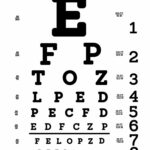Ever wondered what “PA-C” signifies after a healthcare provider’s name? It’s a common yet often enigmatic designation. The answer, while seemingly simple, unlocks a deeper understanding of the medical landscape and the vital roles allied health professionals play. Prepare to delve into the world of Physician Assistants (PAs) and decipher the meaning behind this crucial credential.
Let’s start with the basics. PA-C stands for Physician Assistant-Certified. This certification signifies more than just completing a PA program. It is an attestation of competency and a commitment to ongoing professional development.
The Path to Certification: A Rigorous Journey
Becoming a PA-C is no walk in the park. It requires significant dedication and a stringent academic pursuit. The journey typically involves these key milestones:
- Bachelor’s Degree: A solid foundation in science is paramount. Aspiring PAs usually obtain a bachelor’s degree with a strong emphasis on biology, chemistry, and related health sciences. Courses like anatomy, physiology, microbiology, and organic chemistry are foundational.
- Physician Assistant Program: After the bachelor’s degree, comes the intensive PA program. These programs, typically lasting two to three years, are structured around the medical model and encompass both didactic (classroom-based) learning and clinical rotations. The curriculum mirrors that of medical school, albeit often at an accelerated pace.
- Clinical Rotations: Hands-on experience is indispensable. Students complete rotations in various medical specialties, such as internal medicine, surgery, pediatrics, emergency medicine, and family medicine. These rotations provide exposure to diverse patient populations and clinical scenarios, enabling students to hone their diagnostic and therapeutic acumen.
- PANCE Examination: This is the pivotal point. Upon graduation from an accredited PA program, candidates must pass the Physician Assistant National Certifying Examination (PANCE). This comprehensive exam evaluates a candidate’s knowledge of medical and surgical conditions, diagnostic skills, and treatment methodologies. The PANCE is administered by the National Commission on Certification of Physician Assistants (NCCPA).
NCCPA: The Guardians of Competency
The NCCPA, the National Commission on Certification of Physician Assistants, is the sole certifying organization for PAs in the United States. The NCCPA’s mission is to assure that certified PAs meet established standards of knowledge and clinical skills throughout their careers. The attainment of “PA-C” is thus dependent upon both initial certification through the PANCE, and maintenance of that certification through ongoing professional development. The NCCPA oversees the PANCE, ensuring its validity and reliability as a measure of PA competence.
Maintaining Certification: A Lifelong Commitment
Certification isn’t a one-time achievement. PAs are required to maintain their certification through continuous medical education (CME) and periodic recertification examinations. This underscores the commitment to lifelong learning and staying abreast of the ever-evolving medical landscape.
What Does PA-C Mean in Practice?
The “PA-C” credential signifies several important aspects of a healthcare provider’s qualifications:
- Competency: It signifies that the PA has met rigorous educational and examination standards, demonstrating competency in the diagnosis, treatment, and management of medical conditions.
- Supervision: PAs practice medicine under the supervision of a licensed physician. The scope of practice and level of autonomy can vary depending on state laws and the supervising physician’s preferences.
- Team-Based Care: PAs are integral members of healthcare teams, collaborating with physicians and other healthcare professionals to provide comprehensive patient care. They extend the reach of physicians and improve access to medical services.
- Patient Advocacy: PAs advocate for their patients’ well-being, ensuring that they receive the best possible care.
- Continuing Education: The “PA-C” designation implies a commitment to ongoing professional development and staying current with medical advancements.
Beyond the Acronym: The PA’s Role in Healthcare
Physician Assistants are versatile healthcare providers who can perform a wide range of medical tasks, including:
- Performing physical examinations
- Ordering and interpreting diagnostic tests
- Diagnosing and treating illnesses
- Prescribing medications
- Assisting in surgery
- Counseling patients on preventive healthcare
The role of the PA is critical in addressing the growing demand for healthcare services. Their contributions expand access to care, particularly in underserved areas, and improve the efficiency of healthcare delivery.
The Future of the PA Profession
The PA profession is experiencing significant growth, driven by factors such as an aging population, increasing healthcare costs, and a shortage of primary care physicians. As healthcare evolves, PAs are poised to play an even greater role in the delivery of high-quality, patient-centered care. Expect to see more PAs practicing in specialized areas of medicine and taking on expanded responsibilities within healthcare teams.
In conclusion, the “PA-C” designation is not merely an addendum to a name; it’s a badge of honor signifying a rigorous educational journey, comprehensive medical knowledge, and a commitment to providing exceptional patient care. The next time you encounter a PA-C, remember the dedication and expertise that this credential represents.









Leave a Comment